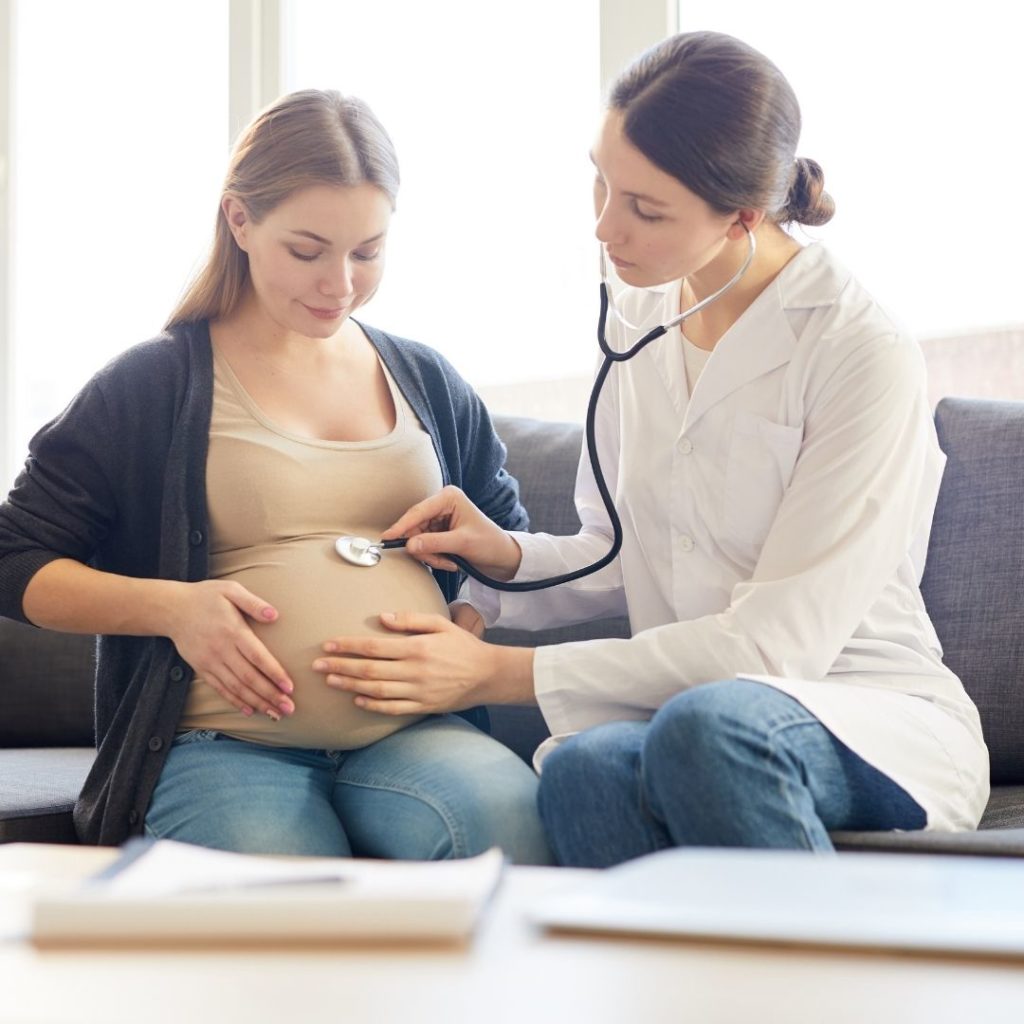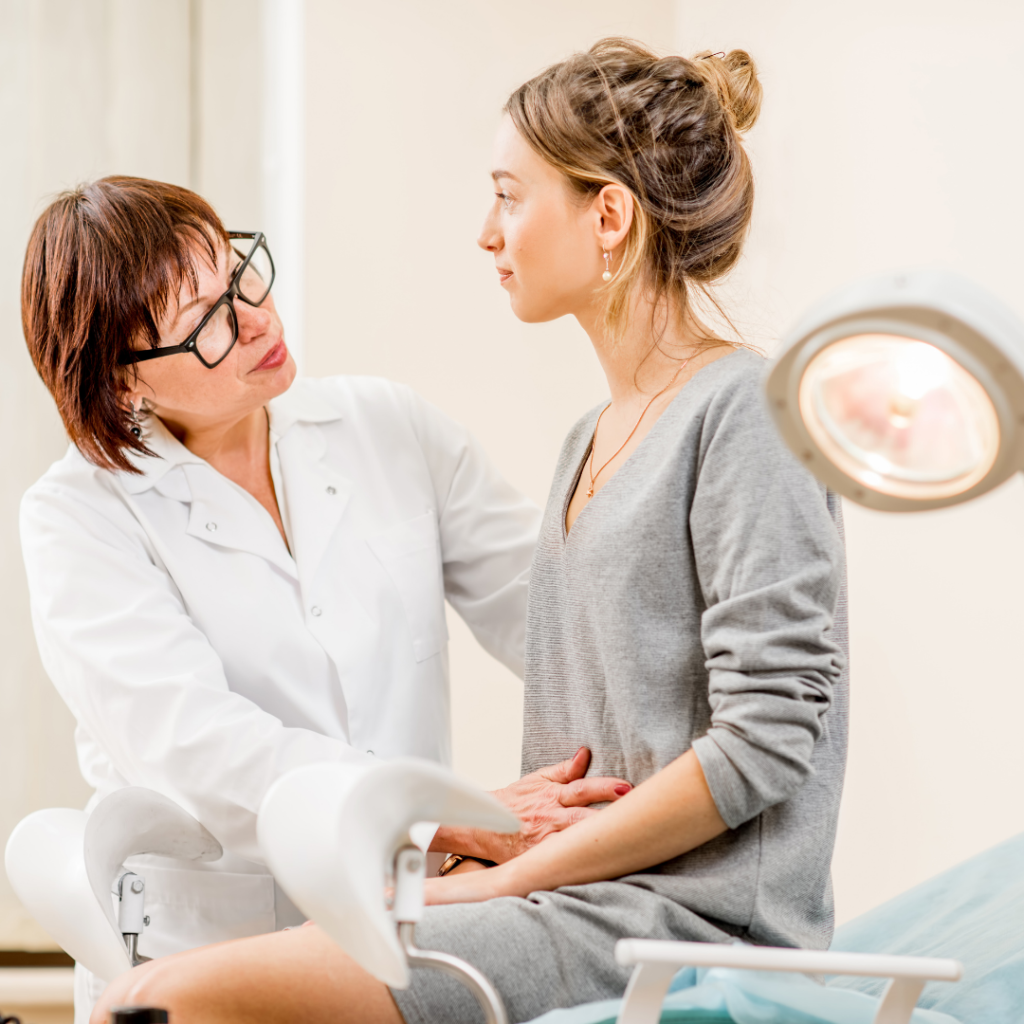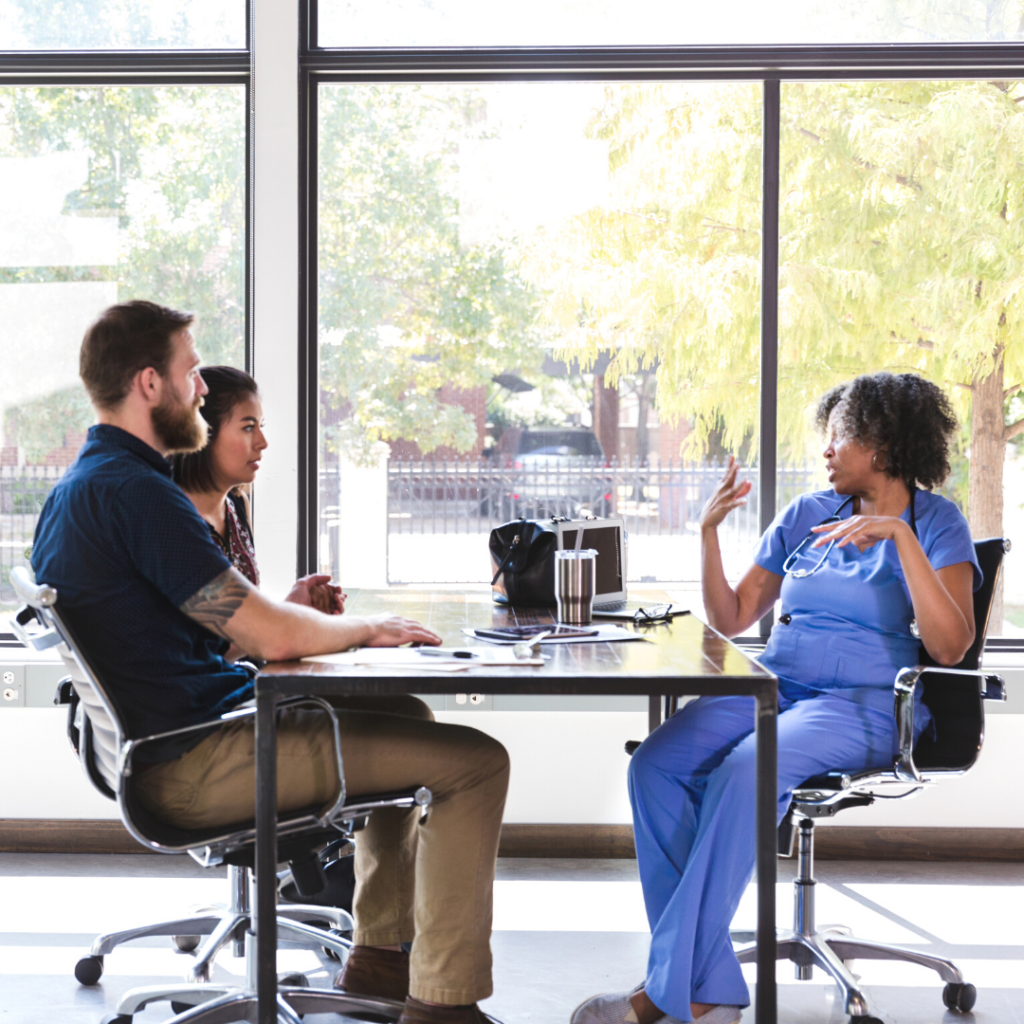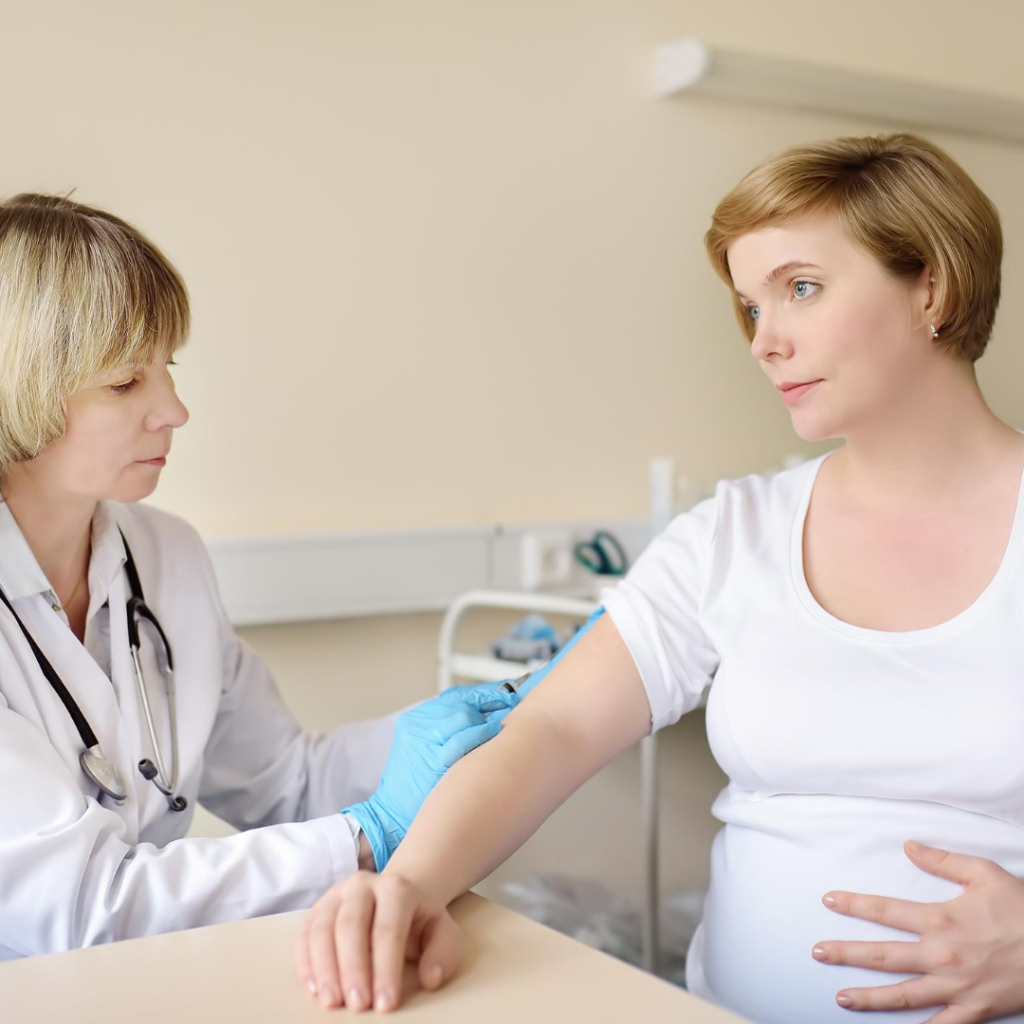
Best Gynecologist in Queens, NY
The Best Gynecologist in Queens, NY
Women for Women OB/GYN LLC is exactly what our name implies; six female Board-certified/ Board-eligible OB/GYN physicians and one female certified nurse practitioner all working cooperatively to offer the best possible care for women from puberty through menopause. Women for Women OB/GYN, the best gynecologist in Queens, NY, provides comprehensive obstetrical and gynecological care from routine check-ups to emergency procedures. We are experts in general obstetric and gynecological care, high-risk obstetrics, laparoscopy, and hysteroscopy. We provide many specialty services including bone densitometry, gynecological sonography, 4-D obstetrical ultrasound, minimally invasive surgery, cosmetic treatments, and personalized wellness consultations.
Our office is on Hollow Ln and our providers are all on staff at LIJ. Steven and Alexandra Cohen Children’s Medical Center of New York which contains a neonatal intensive care unit is part of LIJ and we work closely with their staff as well. The physicians operate with a team approach. Gynecological patients will have a primary care doctor within our practice, but in an emergency, it is possible that they may be attended to by one of the other physicians. Obstetrical patients will rotate with all of the physicians, as we work as a team to provide the most comprehensive care.
Regular Office Hours
8:30 a.m. to 8:00 p.m., Monday through Thursday
8:30 am to 3:00 p.m. on Friday
Make sure you have your copay and all insurance information including insurance cards and, if necessary, your HMO referral at the time of your appointment. Our practice is fully compliant with all federal, state and local mandates. Therefore, please be sure to have a picture ID available at the time of check in. We do our best to see you at your appointment time but occasional emergencies or deliveries may cause delays. We will do our best to keep you from being inconvenienced. There will be a $30 no-show fee for missed appointments without calling the office to cancel. Please feel free to call prior to your appointment to see that we are running on time.
Our Services
Gynecological Tests & Procedures
Sonohysterogram
Many of you may be wondering, “what is a Sonohysterogram?” A sonohysterogram is known as an ultrasound of the Uterus. During this test, your doctor inserts fluid through your cervix to examine your uterine lining. Using this approach allows your doctor to conduct a more in-depth examination as opposed to other tests. Visit an The best Gynecologist in Queens, NY to book your Sonohysterogram today! Our staff here at Women for Women OBGYN can provide patients with this procedure.
Why you may need a Sonohysterogram:
Doctor’s utilize this test for anything from infertility to uterine bleeding. Some of the other reasons may include the following:
- To determine if the fallopian tubes are blocked.
- Examining the uterus if you have experienced a miscarriage or have trouble getting pregnant.
- To examine scar tissue.
- Identify abnormal growths.
- To understand the shape of the uterus.
Hysterectomy
A hysterectomy is a procedure used to surgically remove the uterus. It can be done in a few different ways. Hysterectomy surgery can be broken down into either:
- Laparoscopic.
- Vaginal.
- Abdominal.
The type of procedure depends on the surgeon’s skills and preferences, as well as the patient’s conditions. When the surgeon needs to get a better look at the patient’s pelvic area, an abdominal hysterectomy is conducted. If you’re looking for the best gynecologist in Queens, NY to perform an abdominal hysterectomy, Women for Women Obstetrics and Gynecology is the place to go!
Bone Densitometry
If you’re concerned about your current bone health and risk for fractures, your physician may recommend you get bone densitometry or bone density scan. Bone densitometry will measure both the density and the mineral content of the bones in your body. This test will determine if your bone density is at a healthy level or if any degeneration or development of brittleness has occurred. The loss of bone is referred to as osteoporosis, which is when the body isn’t able to produce new bone in conjunction with the degeneration of old bone. You’ll likely require this if any of the following apply to you: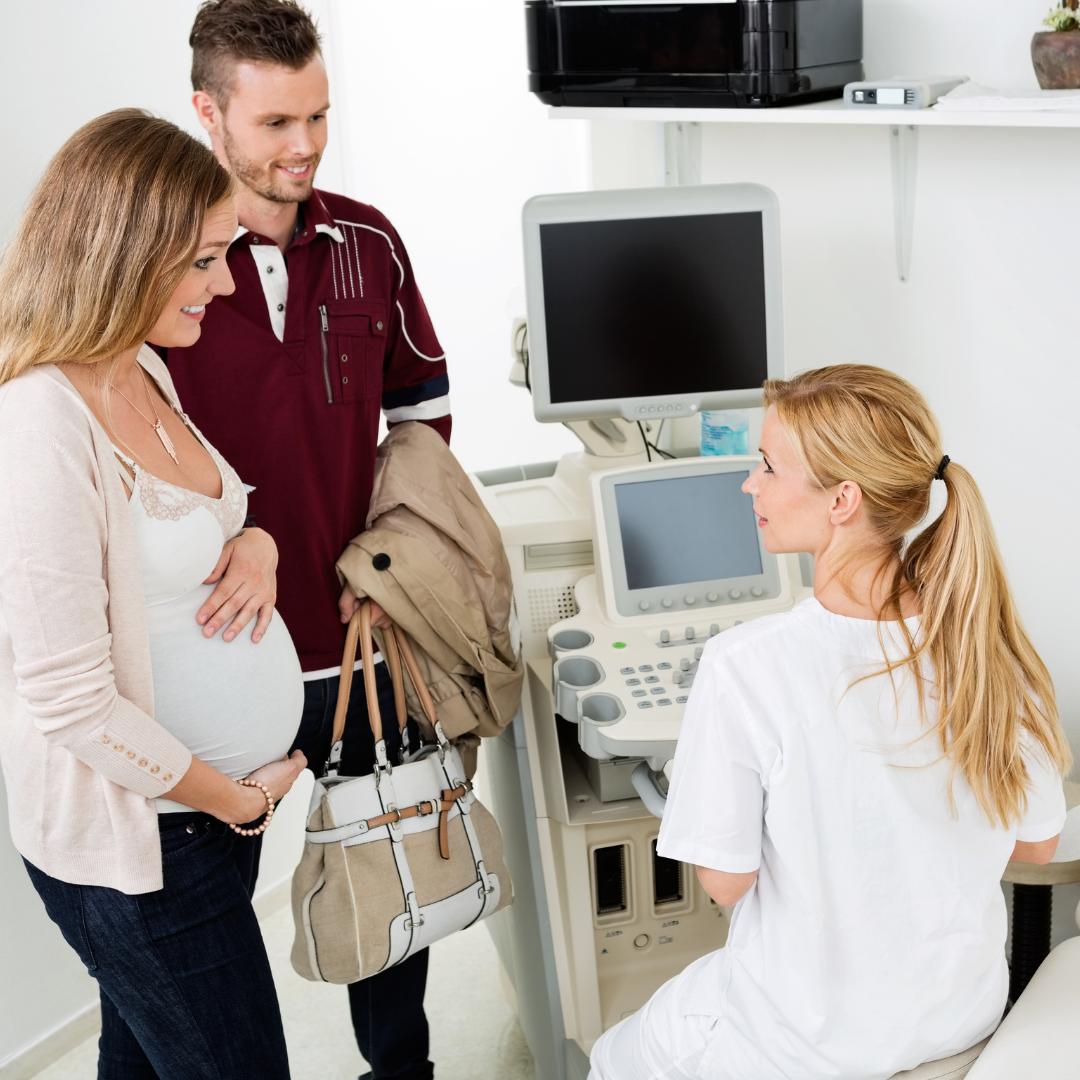
- Have had a bone fracture from a minor injury.
- Minor impacts should not be enough to break a bone. If this happens, your bones may be weak and unable to withstand injury.
- Have had multiple bone fractures in a short amount of time.
- Have osteoporosis that runs in the family. Osteoporosis can be genetic, especially if the maternal side has had this condition.
- Are in post-menopause, which can cause fluctuation in hormones and mineral deficiencies.
- Have low calcium levels. Calcium is needed to keep bones strong.
- Have lower estrogen or testosterone levels than usual. These two sex hormones are required to keep bones healthy.
- Use medications that can cause bone loss, such as drugs that treat: cancer, heartburn, thyroid conditions, seizures, mood instabilities, blood pressure, and certain birth control medications.
- Have Rheumatoid Arthritis, Diabetes, Lupus, Cancer, Celiac Disease, Chronic Kidney or Liver Disease, or other conditions that can cause bone loss.
The Test:
Bone densitometry, performed by a gynecologist in Queens, is an outpatient procedure that is a non-invasive way to test your bone health. During the test, you will put on a hospital gown and lie down on a table. A small mechanical device will scan your body for any abnormalities in bone structure. It will record the mineral content and density. When the results come in, a doctor will determine the health of your bone structure.
Myomectomy
A myomectomy is a procedure done to remove any fibroids in the uterus. Uterine fibroids are noncancerous growths that form in the uterus and can cause severe abdominal pain and heavy periods. To remove them, a surgical procedure must be done to help alleviate symptoms. If you are looking for a safe, welcoming environment for women’s health, consider coming to Women for Women Obstetrics and Gynecology. Our experienced, all-female staff can help you through any obstetrics and gynecological care whether it be a routine checkup or a surgical procedure such as myomectomy, helping to ensure that you are receiving the best care.
The goal of a myomectomy is to remove the fibroids and to then reconstruct the uterus so that it is still functional. After the procedure is complete, symptoms such as abdominal pain and heavy bleeding during your period should improve greatly. A myomectomy is typically recommended over a hysterectomy, a procedure to remove the uterus completely, in case you plan to get pregnant or your fertility is being affected by your fibroids. Based on the location and the sizes of your uterine fibroids, your gynecologist who focuses on women’s health will suggest which type of myomectomy is the best option for you, such as the following:
- Abdominal Myomectomy – During this procedure, a surgeon, who specializes in women’s health in Queens, will remove your fibroids through an incision that is made in the lower belly area. This procedure is best if you have relatively large fibroids in your uterus.
- Laparoscopic Myomectomy – If this is the case, a surgeon will remove your fibroids through several small incisions, which can even be done robotically. This procedure is best for fewer and smaller fibroids.
- Hysteroscopic Myomectomy – Your surgeon will use a scope that goes through your vagina and cervix to remove your fibroids. This procedure is best if you have a larger amount of very small fibroids.
Colposcopy
A colposcopy is a diagnostic procedure used to closely examine your cervix, vulva, and vagina for any signs of disease. A doctor may recommend that you get a colposcopy after having received an abnormal Pap test or pelvic exam result. The procedure is usually done in a doctor’s office and lasts around 10 to 20 minutes, on average. A Gynecologist in Lake Success can perform this procedure for you.
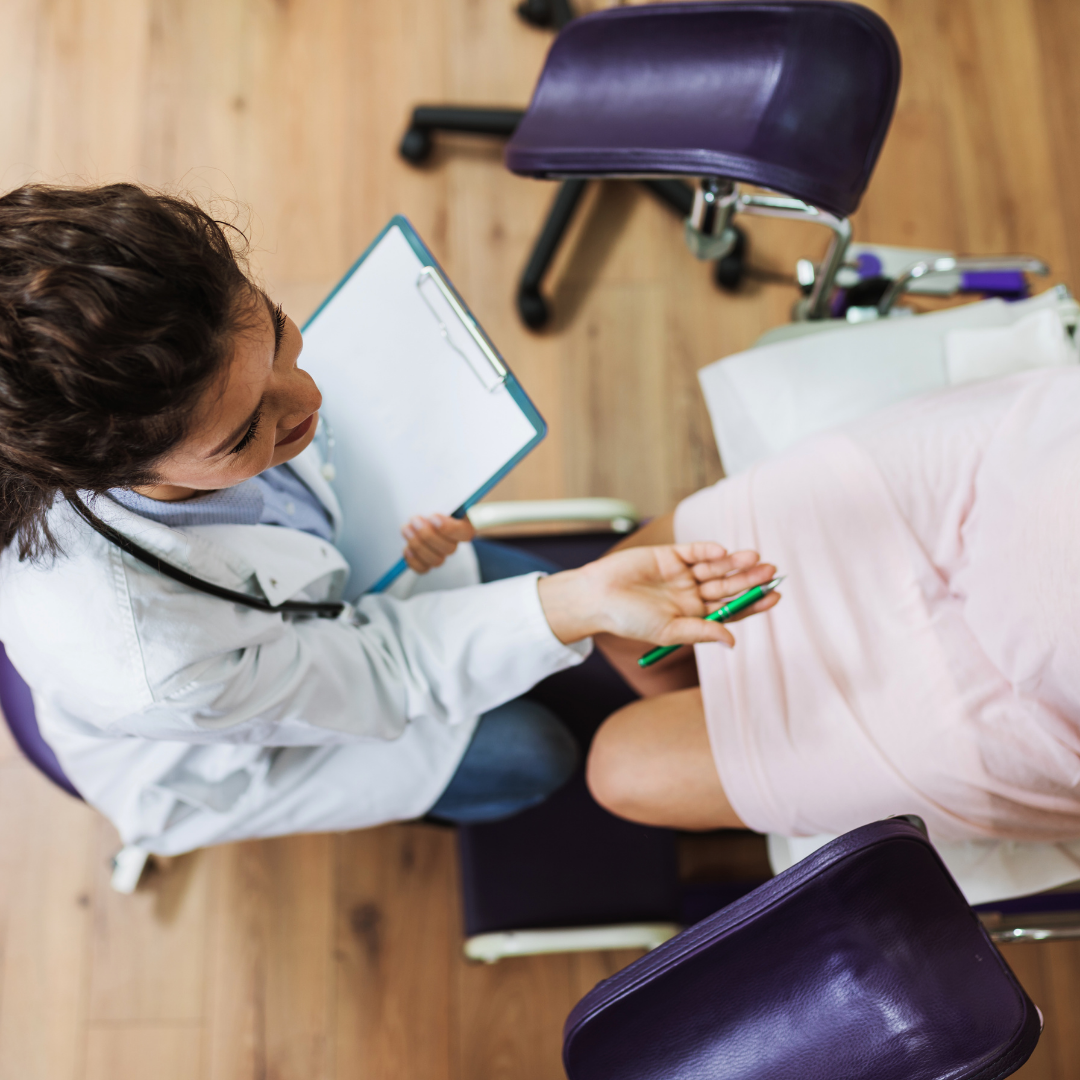 During the procedure, the patient lies on their back with their feet on supports, just like a pap test or pelvic exam. The doctor will then place a metal speculum into the patient’s vagina to hold the walls of it open. This gives the doctor a good view of the cervix so that they can get clear results. Next, the doctor positions a colposcope (a magnifying instrument) a few inches away from the vulva and shines a light into the vagina. The colposcope acts similar to binoculars, giving the doctor a much closer look through the lenses.
During the procedure, the patient lies on their back with their feet on supports, just like a pap test or pelvic exam. The doctor will then place a metal speculum into the patient’s vagina to hold the walls of it open. This gives the doctor a good view of the cervix so that they can get clear results. Next, the doctor positions a colposcope (a magnifying instrument) a few inches away from the vulva and shines a light into the vagina. The colposcope acts similar to binoculars, giving the doctor a much closer look through the lenses.
After the colposcopy is in place, the doctor will swab the cervix and vagina with a cotton swab to clear away any mucus. They will then go in with a vinegar solution to highlight the areas with any suspicious cells. If the doctor finds any suspicious cells during the colposcopy, they will perform a biopsy in which they will take a small sample of tissue and send it in for laboratory testing. A sharp biopsy instrument is used to remove and collect a small piece of tissue. There may be a small amount of pain after removing the tissue, depending on where it was taken from:
- Cervical biopsy: After this procedure, you may feel mild discomfort, pressure, or cramping. However, it should not be painful.
- Vaginal biopsy: This procedure can cause pain when administered to the lower part of the vulva or vagina. The doctor will likely apply a local anesthetic to numb the area during the procedure to avoid discomfort.
Things to Discuss with Your Gynecologist
Women need to schedule consistent appointments with a gynecologist to prevent the development of illness and maintain proper reproductive health. However, many women are unaware of what they should discuss with their gynecologists and their questions, especially if they are experiencing any discomfort or concerning issues.
Our doctors at Women4Women Obstetrics and Gynecology have assembled a list of the most important topics to discuss with your The Best Gynecologist in Queens, NY, as well as vital questions to ask.
Your Family History
One of the most important topics that affect your reproductive health is your family history, as genetic factors are extremely significant in developing various conditions. This is especially important if anyone in your family has developed breast cancer, cervical cancer, ovarian cysts, or other similar conditions.
Symptoms
You know your body best. If you have been experiencing any discomfort, pain, rash, discoloration, discharge, or any other abnormal developments, let your gynecologist know right away. These symptoms can be indicators of illnesses or conditions that need treatment, such as Urinary Tract Infections, Yeast Infections, and several other conditions that your doctor might need to treat.
- Your Gynecological History
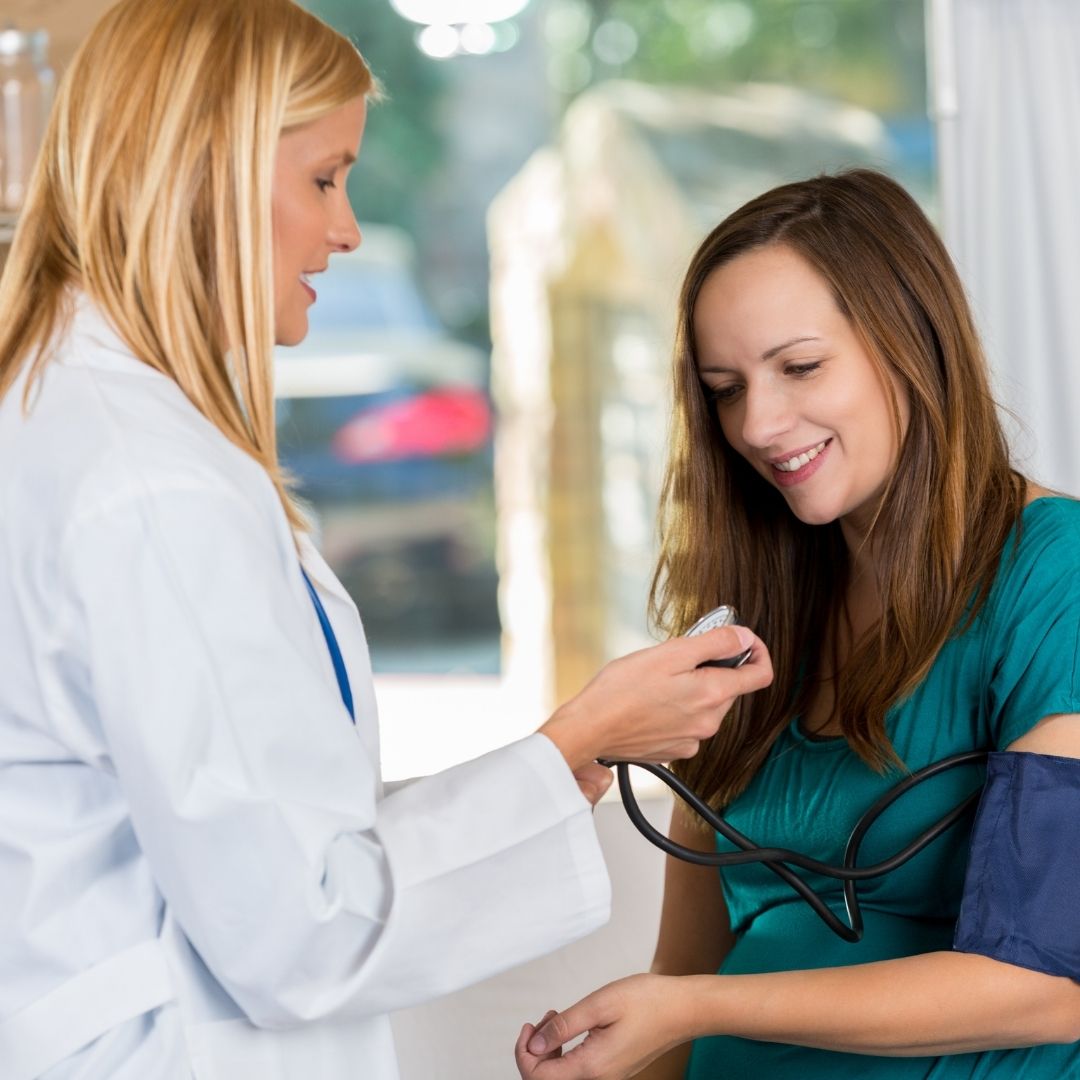
If you have had any gynecological conditions or tests conducted in the past, it is important to inform your doctor of these conditions and the results of any tests. This includes abnormal test results for pap smears, ultrasounds, mammograms, STDs, frequent infections, etc.
Also, inform your The Best Gynecologist in Queens, NY about your menstrual cycle, including irregular periods, abnormally heavy or light flow, excessive menstrual pain, and other related issues.
Your Lifestyle
Although it may not seem like it, your lifestyle is extremely impactful on your gynecological health. Your The Best Gynecologist in Queens, NY will need to know if you smoke, the frequency with which you drink alcohol, and your sexual routines.
These details can be vital in determining the tests you might need against various conditions and diseases, as well as the proper birth control methods for you if you’re seeking them.
Pre-Existing Conditions and Medications
Often, a proclivity for certain health conditions can be an indicating factor in discovering the presence or likelihood of developing other health conditions. For example, if you have had cysts or tumors in other areas of your body, it might be more likely that you could develop cysts or tumors in your breasts. This information will help your gynecologist determine which tests you might need in scanning for various conditions.
In addition, it is important to tell your doctor about any medications that you are currently taking, as they could interact with new prescriptions or even have side effects that might affect any tests for which your The Best Gynecologist in Queens, NY tests you.
Questions to Ask Your Gynecologist
Asking questions is one of the most important parts of your gynecological visit. It is not uncommon for women to be unaware of how their reproductive systems work, and what should or should not be considered normal. Never feel afraid or embarrassed to ask your doctor questions about any symptoms or concerns that you have.
Here are some of the most important questions to ask:
Why do I feel pain during intimate situations?
Pain during intercourse or other intimate acts can be an indicator of underlying conditions. If you are experiencing this type of pain or discomfort, ask your doctor why that might be occurring, and they can help you find the source of your pain.
Are my period cramps supposed to hurt this much?
While a certain degree of pain with period cramps is very normal, excessive, debilitating menstrual pain can sign a health condition, such as endometriosis, menorrhagia, or other conditions. Always ask your doctor about extremely painful cramps.
How should I conduct breast self-checks?
Although your doctor will likely send you for breast examination scans, it is important to conduct self-checks as often. Ask your doctor about the proper way to self-check for any lumps or abnormalities to ensure that any issues are caught right away.
I’m ready to have kids, but I’m on birth control. How do I make the switch?
If you’re on birth control, it is important to ask your doctor how to stop your birth control method before becoming pregnant. Your birth control method will determine how to stop its effects and how soon you will be able to become pregnant. Each individual and birth control method is different, so ask your doctor right away when you decide that you are ready to have a child.
Contact The Best Gynecologist in Queens, NY
Although these topics for discussion and important questions cover a wide span of important gynecological areas, it is important to visit The Best Gynecologist in Queens, NY to receive individualized care and discover any personal issues that you may need to discuss with your physician. Contact us at Women4Women Obstetrics and Gynecology to schedule your appointment and get started on taking control of your reproductive health today!



